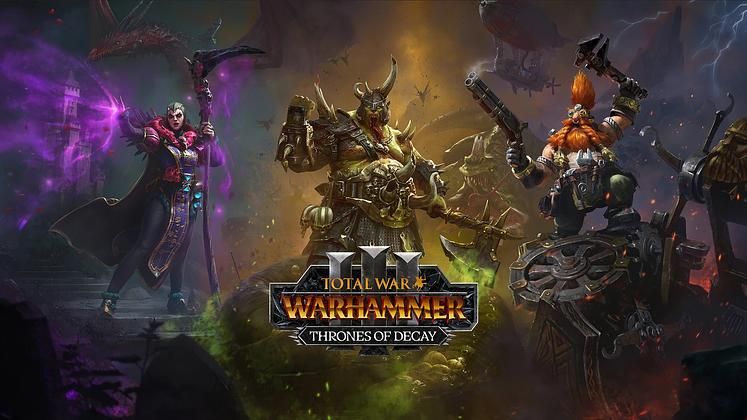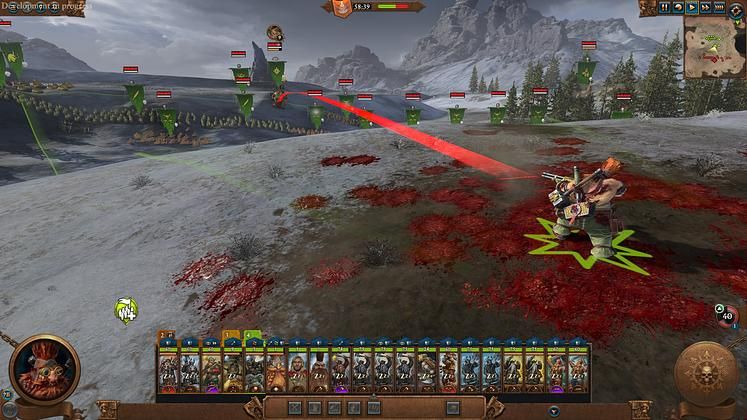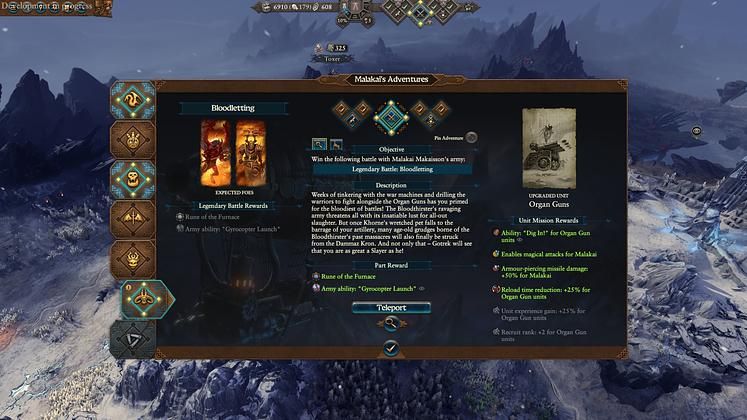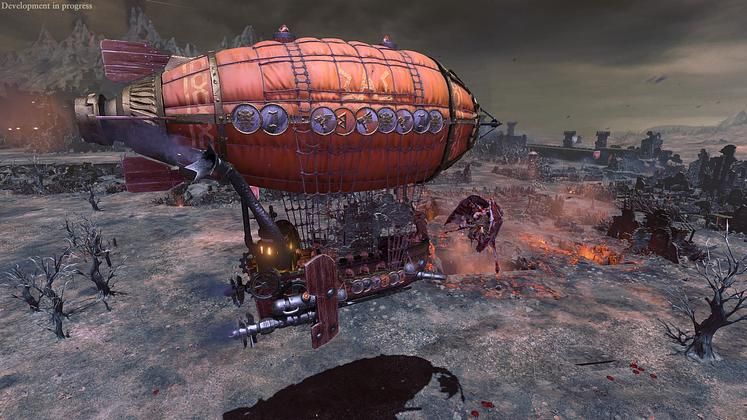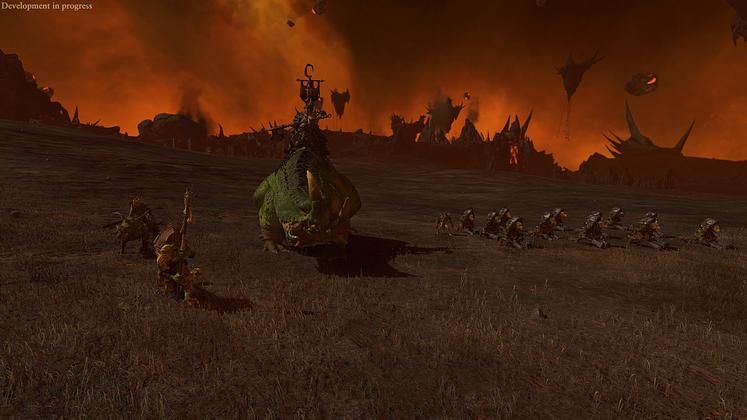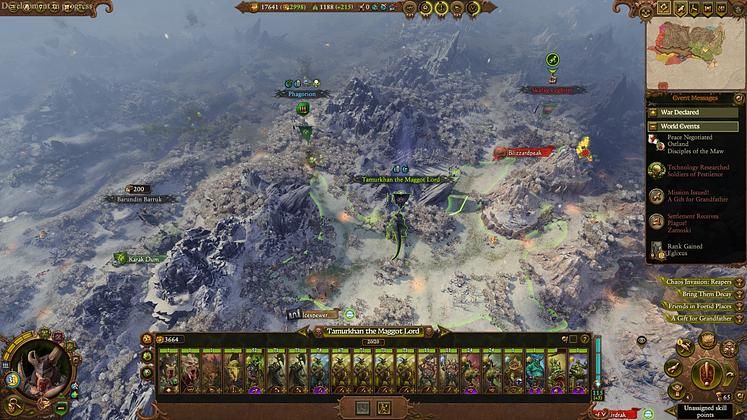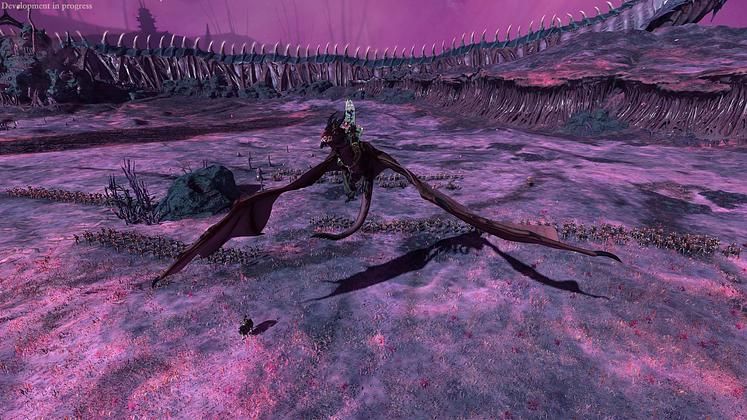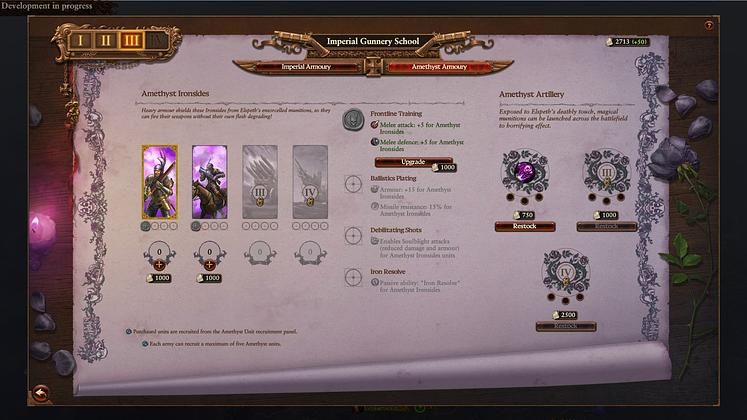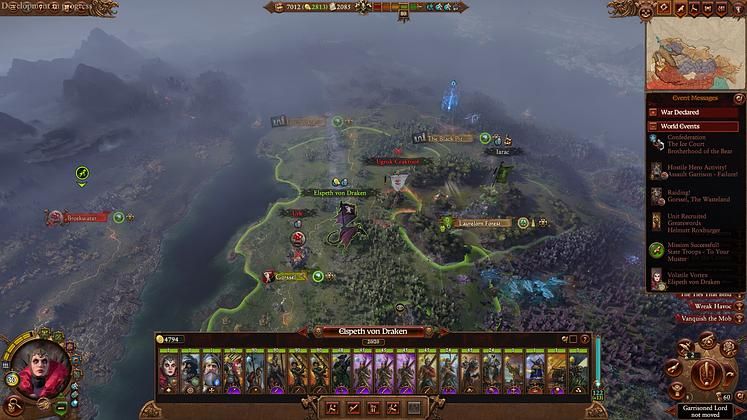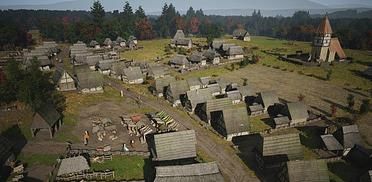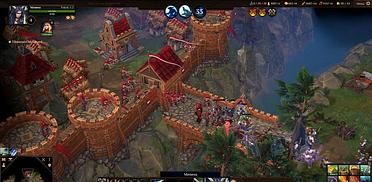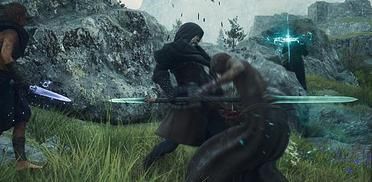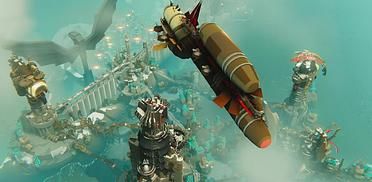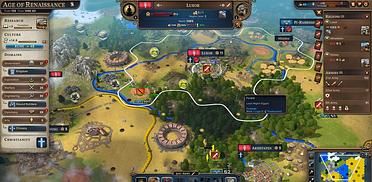Total War: WARHAMMER 3 Review
Thrones of Decay Review - From Decay (hopefully) Comes Rebirth
Thrones of Decay launches at a crucial time for both Total War: Warhammer 3 and Creative Assembly, following a troubled year during which Pharaoh – the latest historical entry in the series – released to little fanfare and the Shadows of Change DLC received widespread community backlash due to its higher price and lower amount of content.
The studio began making amends by partially refunding players for the former and releasing a free content update for the latter, which puts Thrones in the position of proving that the team behind the trilogy still has enough energy to course-correct and bring its wavering post-launch support back on track.
With such a heavy burden to carry, the three Legendary Lords beefing up the rosters of the Dwarfs, Nurgle, and the Empire, alongside their units make a good case for spinning up a new campaign. However, cut corners keep the DLC from ascending to the top of the pantheon.
Bringing Thunderbarges to a Knife Fight
Failed experiments and taking the Slayer Oath haven’t quashed Malakai Makaisson’s love for discovery, which is why he sets out from his cozy home in Kraka Drak in search of new inventions and a glorious death. He doesn’t do so alone, having famed heroes Gotrek and Felix joining his merry band of Dwarfs.
Malakai takes full advantage of the settlements that form the backbone of the Dwarfen economy and military, but his army also travels using a Thunderbarge named The Spirit of Grugni. This dual-role airship serves as both a mobile base and unit that can be summoned for a limited time during actual battles.
The latter is an excellent tactical tool during all campaign stages, swooping in to put its firepower to good use and support your main army. But far more importantly, the ability to easily recruit a good chunk of your roster while on the go and weather attrition more easily has a bigger impact, giving the faction additional flexibility.
Malakai might not have rocket boots strapped to his heels but he can play more aggressively on the campaign map, successfully capturing the fantasy of a rowdy, roving Dwarf who’s all about tinkering with his war machines and testing his modifications in battle.
The faction’s mechanic – Malakai’s Adventures – sees you taking on sets of missions that lead up to a legendary battle. To unlock the latter, you need to complete a fixed number of objectives that include killing hundreds of foes using a specific unit type, solving narrative dilemmas, and fighting in specific climates.
Successful missions add permanent modifiers to certain mechanical units within your roster. To help you test them, a small number of these units becomes instantly recruitable at the start of an adventure. Some bonuses are more impactful than others, and having several active adventures allows you to organically target multiple goals as you work towards claiming victory in the campaign.
The legendary battles themselves, however, don’t quite live up to their name, lacking noticeably unique map layouts or encounter setups to make them stand out. Even the final one – which is by far the most chaotic of the bunch, requiring you to defend Malakai as he holds his ground – amounts to pushing back several waves of enemies while in an open field, which isn’t exactly a novel concept.
As for Malakai himself, he’s a different Dwarfen Legendary Lord who can certainly hold his ground should he get forced into melee but thrives when sniping large monsters or enemy lords from afar. In addition, he also provides strong buffs to Slayers and war machines.
The new Dwarf units introduced in Total War: Warhammer 3 - Thrones of Decay add flavor to these very same areas. The hybrid Pirate Slayers shower enemies with lead using their pistols before stabbing them with their cutlasses. Although poorly armored, Doomseekers deliver devastating damage while spinning around with their dual axes. The massive, unusually resistant Thunderbarges then slowly fly toward foes before unleashing explosive doom below them.
Keeping your armies at full strength is easier than ever when playing as Malakai thanks to several avenues of unit recruitment, one of which was introduced as part of the Dwarf race rework coming with the free update 5.0.
The majority of these changes hit the mark – making the technology tree easier to navigate and setting Legendary Grudges as fixed, longer-term objectives that eventually unlock fast travel – but the Age of Reckoning mechanic can feel a bit too punishing at times, especially when you’re not being overly aggressive.
In practice, you need to settle a required number of grudges within the 10-turn span of each age. The more grudges you settle, the bigger the bonuses received – up to a full army that joins you – but lagging behind results in penalties that can greatly weaken your economy.
Of Maggot Puppeteers and Toad Dragons
Tamurkhan’s pestilent crusade trades the joyful giggle of Nurglings for straightforward brutality, focusing on ravaging the land while gathering powerful Chieftains under your banner and securing their Fealty. Not only do these heroes – who belong to different Chaos-serving races – act as controllable characters on both the campaign map and in real-time battles, but they also provide a series of units Nurgle doesn’t usually have access to alongside various unique Chieftain abilities, such as enabling the Stalk stance for certain armies.
Recruiting them requires Dominance, a currency earned primarily through winning battles. Perform specific tasks tailored to each Chieftain then increases their Fealty level. Chaos Dwarf Ezar Doombolt demands looting settlements and fighting Dwarves, Greenskins, and Skaven. Fimir mage Ketzak Fimdirach trusts you more as you research technologies and defeat elves.
Some objectives might feel out of reach initially, but they do encourage you to somewhat diversify who and how you slaughter. If, however, you’re too far from your target, narrative events that often require you to side with one Chieftain over another, offer additional opportunities for increasing Fealty.
As much as the blurbs accompanying these dilemmas attempt to instill a sense of tension between Tamurkhan’s malevolent underlings, a lack of significant negative effects to choosing sides means that, eventually, everyone hugs it out and continues spreading Grandfather Nurgle’s love. The worst thing that happened to one Chieftain during my playthrough saw him getting wounded and out of action for a single turn, too little time to even notice his absence.
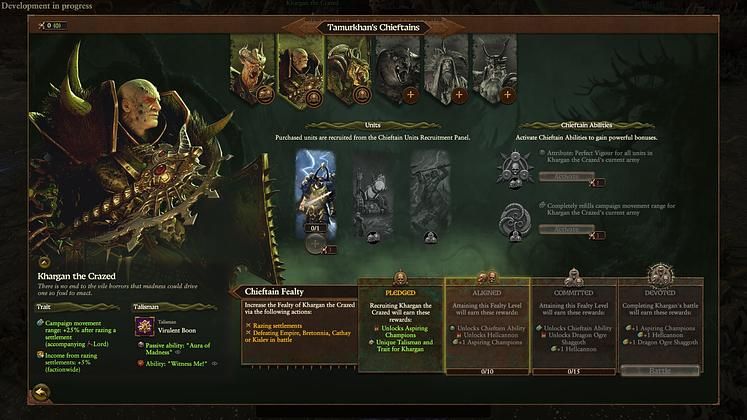 Strong additions to your army, Chieftains also provide a series of tactical and strategic advantages.
Strong additions to your army, Chieftains also provide a series of tactical and strategic advantages.
As recruited chieftains progress through four Fealty levels, they progressively unlock more bonuses, abilities, and units for Tamurkhan’s faction. At rank four, each Chieftain tasks you with helping them in a final battle; winning three of these secures the campaign victory.
Unless you head southwards of your own volition, you’ll only interact with the city of Nuln during Tamurkhan’s quest battle for the Black Cleaver. But even here, you decimate Imperial units outside the city walls in a fight that’s off to a promising start – as artillery attempts to weaken your durable army – but never reaches the heights of Thrones of Decay’s announcement trailer.
Tamurkhan himself is a force to be reckoned with, especially when riding his Toad Dragon, Bubebolos. The very definition of a tank, he can take plenty of punishment and isn’t shy about dishing it out either, favoring a decidedly more hands-on approach to battle when compared to Ku’gath Plaguefather.
The new Nurgle units also help flesh out the race’s roster. Rot Knights are excellent cavalry that efficiently take down large targets and wreak general havoc. Toad Dragons happily crash into the enemy lines using their monstrous strength to easily toy with helpless infantry, while Plague Ogres noticeably bolster Tamurkhan’s early-game strength, killing scores of foes during my playthrough.
The Chieftain units allow you to recruit the likes of Aspiring Champions, Cygors, or Chaos Dwarfs Blunderbusses, further helping improve areas where Nurgle usually struggles. But, even without them, Tamurkhan’s lumbering tide of daemons is a capable force on its own.
These additions alongside Nurgle’s race rework – also going live with update 5.0 – made playing as a servant of the Plague God finally click for me. Static economy buildings provide more predictability while cyclical military structures maintain some of the original flavor.
The tech tree feels generally more useful while the Plague system has a touch more customization and unpredictability – although I wish the symptoms provided wilder effects than increased growth and reduced enemy armor or damage more often.
That being said, as fun as Tamurkhan’s campaign is, it doesn’t quite stick the landing on the narrative side of things, which I realize might not be the main concern of most Total War: Warhammer III players.
Not only does it suddenly end after the third Chieftain battle, but the short cutscene afterwards references incursions (plural) into “the empire of man,” which didn’t feel accurate after I spent 99% of my time ravaging other daemonic hosts, Ogres, and Greenskins. The three DLC lords also never clash in a climactic confrontation, which I found quite disappointing.
A Brooding Mage and Her Gardens
Safeguarding Nuln and Wissenland against all threats, Elspeth von Draken rides her imposing Carmine Dragon into battle, flinging deadly spells at her foes before turning them into big lizard food. As a race, the Empire never did much for me, and Thrones of Decay hasn’t changed that, even with its fairly awesome unit additions.
Elspeth’s unique mechanic allows her to spend a currency called Schematics – earned by fighting battles and picking certain post-battle actions – in the Imperial Gunnery School menu, gaining permanent upgrades for gunnery and artillery units alongside access to powerful Amethyst variants of a few troops.
Advancing through tiers by completing specific objectives – such as getting enough kills using Amethyst units – unlocks more powerful upgrades and new battle abilities, but even if some of the bonuses you obtain – such as additional projectiles for the Helstorm Rocket Battery – encourage you to lean more heavily into ranged warfare, the whole mechanic feels undercooked, boiling down to a menu you dip into now and then to make some of your units stronger.
Thankfully, Elspeth can not only use fast travel by constructing Gardens of Morr in Imperial settlements but also efficiently debuffs and devastates foes using the Lore of Death. Her new troops add some needed spice to a roster that I always found a little boring.
The Knights of the Black Rose are an excellent melee cavalry unit that’s very capable of holding their own in prolonged combat. The Nuln Ironsides made up the majority of my ranged line, while the Hochland Long Rifles provide effective sniping power for those bigger targets.
Then, there’s the Marienburg Landship, a massive contraption that shouldn’t work in practice but is very much a sight to behold as it breaks enemy lines in all its clunky glory.
Elspeth’s narrative revolves around defending the Empire while tracking down the Nemesis Crown – an item tied to a new mechanic that’s part of the accompanying free update, but which didn’t seem to be active in the Realms of Chaos campaign during my playthroughs.
Yet, even as it asks you to briefly put on your thinking cap and track down a settlement without a quest marker, it feels as inconsequential and detached as the others do by the time you reach their conclusion.
The three Lords’ mechanics in Thrones of Decay help make their respective campaigns feel different but noticeably share DNA, revolving around additional menus that yield bonuses to some units while facilitating easy recruitment of stronger variants. By and large, they do help support the factions with several noticeably potent bonuses, but they’re also not exactly innovative and could have used a bit more personality to set them apart.
The review build also lacked polish, although there is a chance that the issues I encountered may be fixed by the time everyone gets their hands on the DLC. To name a few, the voices of Lords were far too silent during legendary battle speeches while I also encountered weird lighting on unit cards and maps.
Certain abilities wouldn’t cast unless I clicked on them repeatedly, while Elspeth’s final quest seemed to initially offer three optional fights that would help weaken the large army I was going up against, only for two to disappear without a trace after hitting the End Turn button.
TOTAL WAR: WARHAMMER 3 VERDICT
Although flawed, Thrones of Decay is a desperately needed step in the right direction for Total War: Warhammer 3. The strong roster of Legendary Lords alongside new units that add flavor and fill gaps in their factions’ rosters do the heavy lifting. They offer compelling reasons to revisit or try out their respective races, especially if you also factor in the reworks coming in update 5.0.
At the same time, delaying the DLC didn’t fully help avoid undercooked elements. Lackluster “legendary” battles taking place on maps that feel randomly generated, the three lords never clashing in an epic confrontation, and Tamurkhan’s campaign ending all too suddenly all feel like cut corners, while a host of familiar – yet undoubtedly effective – mechanics could have used a bit more uniqueness.
Even with these issues, Thrones of Decay remains a good Warhammer 3 DLC and its different pricing model certainly helps lessen the effect of some of these negative aspects, as you can pick only the faction(s) you’re interested in or purchase them in a staggered manner. Hopefully, this marks the moment when the game’s troubled post-launch support finally begins hitting its stride.
TOP GAME MOMENT
Crashing a Toad Dragon into helpless enemy units for the very first time.
Good vs Bad
- Great new units and lords
- New mechanics encourage different playstyles
- Disappointing legendary battles and narrative
- Could have used additional polish
